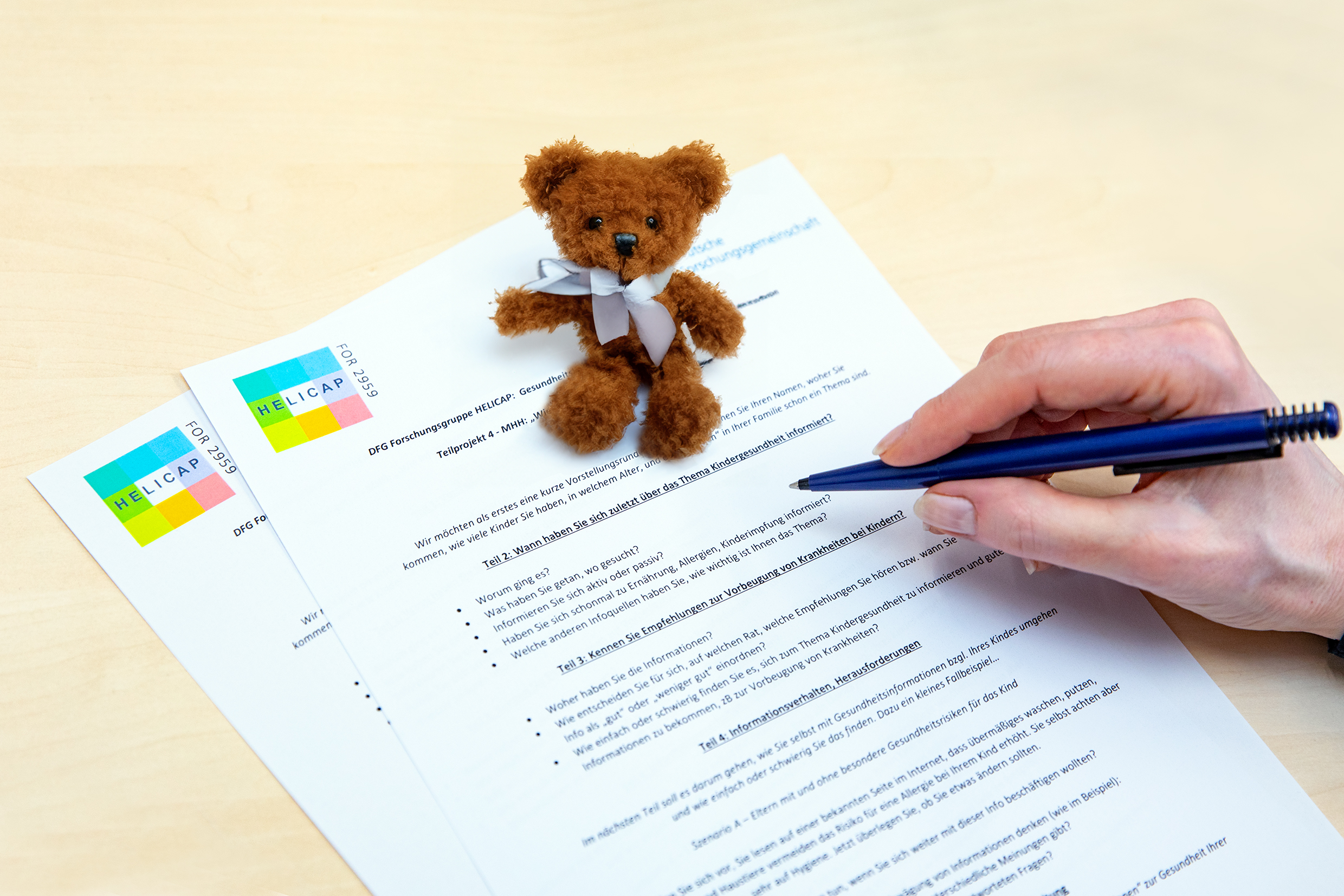German Research Foundation funds HELICAP prevention network for another three years with 3.8 million euros

Survey of parents to strengthen health literacy on the topic of early childhood allergies. Copyright: Karin Kaiser / MHH / Photoshop-AI generated
More than half of Germans estimate that they have difficulties dealing with the flood of health information and finding their way around the healthcare system. This is problematic, as health literacy and individual health are directly related. The HELICAP (Health literacy in early childhood allergy prevention) research group is investigating the individual conditions that determine whether people are well and correctly informed using the example of early childhood allergy prevention. With 20 experts from the fields of social sciences, health sciences and medicine at a total of six German university locations –including Hannover Medical School (MHH) – HELICAP is focussing on an interdisciplinary approach. HELICAP is coordinated by the University Medical Centre Magdeburg in cooperation with the University of Education Freiburg. The aim is to improve the scientific basis for a more comprehensive understanding of health decisions and to promote parents' health literacy in the long term. The German Research Foundation (DFG) has now extended the funding for a further three years and is supporting the project with a total of 3.8 million euros. Around 560,000 euros of this will go to the MHH.
The "User needs" sub-project, led by Dr Jonas Lander, public health expert at the MHH Institute of Epidemiology, Social Medicine and Health Systems Research, is looking at how the existing range of information can better reach parents. The researchers also want to develop recommendations for suitable information materials to promote parental health literacy. While the sub-project in Hanover is concerned with parental perspectives, the other teams are developing concepts that health experts can use to better advise parents, analysing parental prevention behaviour in everyday life and evaluating which prevention measures are effective from a scientific perspective.
Reliable information is not easy for parents to find
The topic of prevention is becoming increasingly important, emphasises Dr Lander. "More and more children are suffering from allergies - with a persistent and sometimes increasing trend," he says. However, it is not easy for affected parents to find information. A lack of quality, especially from digital sources, misunderstandings and myths make it difficult to make the right decisions about prevention. However, the first three years of life are particularly formative for the development of a child's immune system. "When it comes to allergy prevention, scientific recommendations change quickly. However, good information can only be developed if we know how parents deal with recommendations and which resources they trust," the health scientist points out. For example, it used to be assumed that allergy-causing substances should be avoided in children, whereas it is now clear that early exposure to allergens such as animal hair, nuts or grass pollen prevents allergies.
Contact persons often busy with other tasks
Based on interviews conducted during the first funding phase, the MHH researchers from the Patient Orientation and Health Education working group have already established that parents generally obtain less information about digital services from the internet. Instead, they see health and social care facilities as an important source of information due to their relationship of trust and their regular personal contact with educators, paediatricians and midwives. "The results are meaningful because we spoke to 144 parents from different social, linguistic and cultural population groups about how they find, understand, evaluate and use information for their children's health in everyday life," emphasises Dr Lander. The problem is that the contact persons favoured by parents are often busy with other tasks and therefore rarely have time for allergy advice. "The latest research findings also show that although healthcare professionals are often aware of scientific findings on allergy prevention, they are not actively passed on," says the public health researcher.
Over the next three years, Dr Lander and his team now want to investigate how the existing services can be passed on to parents as easily as possible. "We will test the process of passing on information via various organisations and then check what works and what doesn't and under what conditions." After three years, there should then be concrete recommendations on how this can work best.
Text: Kirsten Pötzke